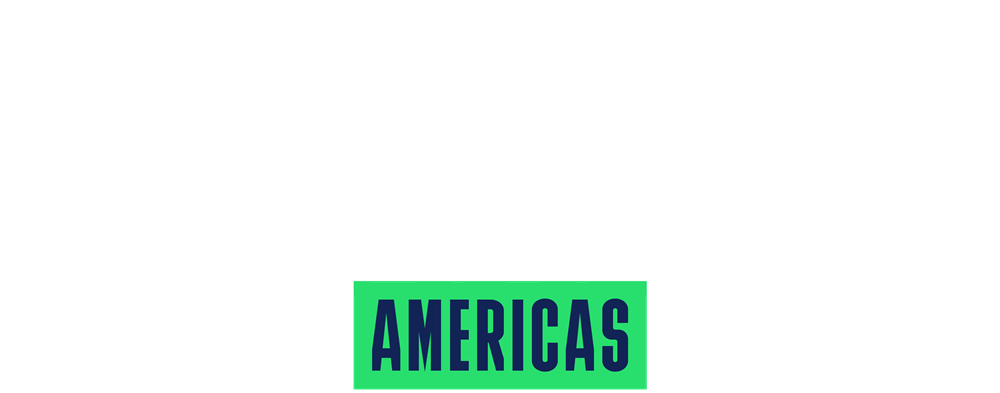Feb 06 | 2020
As of January 2020, the new IMO sulphur regulations are in effect.
This is a potential game changer for the heavy lift and breakbulk industry. Maritime shippers are facing a new fuel pricing reality.
All seagoing vessels will have to reduce sulphur dioxide emissions by 85%. That’s the ruling laid down by the International Maritime Organisation.
This regulation applies globally – not just for carriers operating in European waters.
Carriers must now power their ships with low-sulphur fuels. This doesn’t just affect fleet operators, however.
It calls for a worldwide shakeup in the global fuel supply chain.
Environmental concerns have driven this change. The emissions generated by maritime shipping are huge. Just the world’s 15 largest ships generate as much nitrogen oxide and sulphur oxide as the 760m cars.
Before the regulations came into force fuel costs were already enormous. Maersk’s fuel bill in 2017 was already $3.4bn. These could rise by another $2bn annually. And that’s only one shipper.
Forecasts suggest that, in the long term, IMSO 2020 could cost the breakbulk industry as much as $50bn.
At key bunker ports around the world, prices for very low sulphur fuel (VLSFO) have already shot up.
In Singapore, per-ton prices of VLSFO have reached $724.50. That’s a major increase compared with the beginning of December, when prices floated around $550. Similar increase can be seen at Fujairah in the UAE, where a ton of very low sulphur fuels costs $777.50 against December’s $570.
Fuel prices have grown 50% at these areas. That’s alarming for an industry already facing cashflow problems.
Looking at Western ports, per-ton prices are increasing, but so dramatically as at Eastern bunkers. Rotterdam’s current costs, according to data from Ship&Bunker, are $593.50. Even this figure features considerable inflation. VLSFO prices at Rotterdam in December 2019 were a flat $500.
So, we can see the impact has already been big.
While preparations have been underway for some time prior to the January 2020 deadline, multiple options were open to operators around the world.
• Scrubbers – Scrubbers are an emission cleaning technology that removes pollutants from ship exhausts. In theory, this would allow the continued use of high-sulphur fuels. Installing scrubbers is expensive due to space and vessel capacity constraints and will likely result in higher operating costs. Additionally, the availability of high sulphur fuels after 2020 is uncertain.
• Switch to non-petroleum fuels – Alternative fuel sources are being explored and deployed in fleets worldwide. LNG is being touted by as the key replacement for petrol-based fuels. Even so, the infrastructure to support mass-adoption of LNG is limited in scope and availability in scope. Clarkson’s Research were predicting by 2020, up to 500 vessels will run on LNG or feature pollution-cleaning technology. That’s only 12% of global ships.
• Switch to VLSF or MGO – Very Low Sulphur Fuel or Marine Gas Oil mixtures comply with IMO rules.
IMO 2020 is amongst the largest regulatory changes in the shipping industry for over a decade.
As mentioned earlier, costs are expected to rise; not just for shippers, but for customers too, as carriers hope to recoup a higher ROI to cover the rise in fuel prices.
Some carriers have been open with how they’re planning on tackling the emerging challenges presented by IMO 2020. Others have been less so, drawing criticism from industry commentators and shippers alike.
“The proposals from the shipping companies are really non-transparent. The final price also depends on speed, type of vessel and port stay. We are talking about a process that is absolutely unclear to me,” Jochen Gutschmidt, Global Freight Lead at Nestlé, said in an interview with Shippingwatch.
These concerns have been matched by other shippers, as well as organisations such as the European Shippers Council (ESC). The ESC has called for several highlighted the need for closer cooperation between shippers and carriers regarding IMO adoption.
Vagaries from leading carriers regarding surcharge calculations have raised the ire of cargo owners.
AAL, for instance, simply stated: “In the multipurpose shipping sector, we know well that one size does not fit all. Therefore, in consideration of the wide variety of cargo and trades that we handle and manage worldwide, we will be implementing various calculation methodologies to fairly share the increased cost of low sulphur fuel usage with our customers.”
Transporters operating in emission control areas (ECAS) have already experienced low-sulphur emission caps. Ships passing through the Baltic and North Sea have been required to cut sulphur emissions to 0.1% since January 2015.
BBC Chartering, for example, responded to ECA regulations by imposing low-sulphur cargo loading or discharging in North Europe and the Baltic.
SAL Heavy Lift announced in December 2019 that it was switching to a new hydrogen/methanol mix to power its vessels. The newly-developed system, designed alongside Germany’s Fuelsave, promises to cut fuel consumption and harmful emissions.
The system, called FS Marine+, has been in development for four years. Through injecting a mix of hydrogen, oxygen, water, and methanol, into engine air intakes, cleaner combustion is achieved.
SAL will invest millions into retrofitting FS Marine+ to the main and auxiliary engines of its vessels but it expects rapid returns thanks to the reduced fuel consumption. The first vessel to be equipped with the system is the MV Trina in the first quarter of 2020.
Others are taking a mixed approach. For example, Zeamarine has decided to split its fleet between scrubber installations and cleaner fuels. The Bremen-based carrier has made its decision based on numerous indicators, including vessel age and construction, potential refinancing possibilities, and vessel balance sheets.
Because Zeamarine’s fleet incorporates so many ages and sizes of vessels, under long-term and short-term time charters, commercially managed, and under bareboat charters, etc., there is no one, coordinated policy across the fleet. It expects to see changes in fuel demand and price, and these could lead to adjustments for planned scrubber installations.
Whether you are offering new fuel solutions and technologies, cost strategies, or fuel and cost-efficient shipping, you’ll find your customers at Breakbulk Europe.
As an exhibitor, you will meet face-to-face with project owners, EPCs, industrial manufacturers and global project forwarders—the people who are actively searching to streamline their processes and embrace a new digital era for breakbulk, heavy-lift and project freight.
Share your services and your expertise directly with buyers in a venue designed for making the connections you need for new business.
Become a Breakbulk Europe exhibitor today.
IMSO 2020 and Breakbulk
State of the fuel regulations
All seagoing vessels will have to reduce sulphur dioxide emissions by 85%. That’s the ruling laid down by the International Maritime Organisation.
This regulation applies globally – not just for carriers operating in European waters.
Carriers must now power their ships with low-sulphur fuels. This doesn’t just affect fleet operators, however.
It calls for a worldwide shakeup in the global fuel supply chain.
Environmental concerns have driven this change. The emissions generated by maritime shipping are huge. Just the world’s 15 largest ships generate as much nitrogen oxide and sulphur oxide as the 760m cars.
Before the regulations came into force fuel costs were already enormous. Maersk’s fuel bill in 2017 was already $3.4bn. These could rise by another $2bn annually. And that’s only one shipper.
Forecasts suggest that, in the long term, IMSO 2020 could cost the breakbulk industry as much as $50bn.
Fuel prices already on the rise
At key bunker ports around the world, prices for very low sulphur fuel (VLSFO) have already shot up.
In Singapore, per-ton prices of VLSFO have reached $724.50. That’s a major increase compared with the beginning of December, when prices floated around $550. Similar increase can be seen at Fujairah in the UAE, where a ton of very low sulphur fuels costs $777.50 against December’s $570.
Fuel prices have grown 50% at these areas. That’s alarming for an industry already facing cashflow problems.
Looking at Western ports, per-ton prices are increasing, but so dramatically as at Eastern bunkers. Rotterdam’s current costs, according to data from Ship&Bunker, are $593.50. Even this figure features considerable inflation. VLSFO prices at Rotterdam in December 2019 were a flat $500.
So, we can see the impact has already been big.
What carriers will consider going forward
While preparations have been underway for some time prior to the January 2020 deadline, multiple options were open to operators around the world.
• Scrubbers – Scrubbers are an emission cleaning technology that removes pollutants from ship exhausts. In theory, this would allow the continued use of high-sulphur fuels. Installing scrubbers is expensive due to space and vessel capacity constraints and will likely result in higher operating costs. Additionally, the availability of high sulphur fuels after 2020 is uncertain.
• Switch to non-petroleum fuels – Alternative fuel sources are being explored and deployed in fleets worldwide. LNG is being touted by as the key replacement for petrol-based fuels. Even so, the infrastructure to support mass-adoption of LNG is limited in scope and availability in scope. Clarkson’s Research were predicting by 2020, up to 500 vessels will run on LNG or feature pollution-cleaning technology. That’s only 12% of global ships.
• Switch to VLSF or MGO – Very Low Sulphur Fuel or Marine Gas Oil mixtures comply with IMO rules.
Calls for transparency
IMO 2020 is amongst the largest regulatory changes in the shipping industry for over a decade.
As mentioned earlier, costs are expected to rise; not just for shippers, but for customers too, as carriers hope to recoup a higher ROI to cover the rise in fuel prices.
Some carriers have been open with how they’re planning on tackling the emerging challenges presented by IMO 2020. Others have been less so, drawing criticism from industry commentators and shippers alike.
“The proposals from the shipping companies are really non-transparent. The final price also depends on speed, type of vessel and port stay. We are talking about a process that is absolutely unclear to me,” Jochen Gutschmidt, Global Freight Lead at Nestlé, said in an interview with Shippingwatch.
These concerns have been matched by other shippers, as well as organisations such as the European Shippers Council (ESC). The ESC has called for several highlighted the need for closer cooperation between shippers and carriers regarding IMO adoption.
Vagaries from leading carriers regarding surcharge calculations have raised the ire of cargo owners.
AAL, for instance, simply stated: “In the multipurpose shipping sector, we know well that one size does not fit all. Therefore, in consideration of the wide variety of cargo and trades that we handle and manage worldwide, we will be implementing various calculation methodologies to fairly share the increased cost of low sulphur fuel usage with our customers.”
Cost strategies from breakbulk & heavy lift carriers
Transporters operating in emission control areas (ECAS) have already experienced low-sulphur emission caps. Ships passing through the Baltic and North Sea have been required to cut sulphur emissions to 0.1% since January 2015.
BBC Chartering, for example, responded to ECA regulations by imposing low-sulphur cargo loading or discharging in North Europe and the Baltic.
SAL Heavy Lift announced in December 2019 that it was switching to a new hydrogen/methanol mix to power its vessels. The newly-developed system, designed alongside Germany’s Fuelsave, promises to cut fuel consumption and harmful emissions.
The system, called FS Marine+, has been in development for four years. Through injecting a mix of hydrogen, oxygen, water, and methanol, into engine air intakes, cleaner combustion is achieved.
SAL will invest millions into retrofitting FS Marine+ to the main and auxiliary engines of its vessels but it expects rapid returns thanks to the reduced fuel consumption. The first vessel to be equipped with the system is the MV Trina in the first quarter of 2020.
Others are taking a mixed approach. For example, Zeamarine has decided to split its fleet between scrubber installations and cleaner fuels. The Bremen-based carrier has made its decision based on numerous indicators, including vessel age and construction, potential refinancing possibilities, and vessel balance sheets.
Because Zeamarine’s fleet incorporates so many ages and sizes of vessels, under long-term and short-term time charters, commercially managed, and under bareboat charters, etc., there is no one, coordinated policy across the fleet. It expects to see changes in fuel demand and price, and these could lead to adjustments for planned scrubber installations.
Join the IMO 2020 conversation at Breakbulk Europe
Whether you are offering new fuel solutions and technologies, cost strategies, or fuel and cost-efficient shipping, you’ll find your customers at Breakbulk Europe.
As an exhibitor, you will meet face-to-face with project owners, EPCs, industrial manufacturers and global project forwarders—the people who are actively searching to streamline their processes and embrace a new digital era for breakbulk, heavy-lift and project freight.
Share your services and your expertise directly with buyers in a venue designed for making the connections you need for new business.
Become a Breakbulk Europe exhibitor today.





